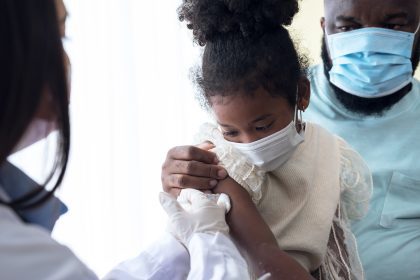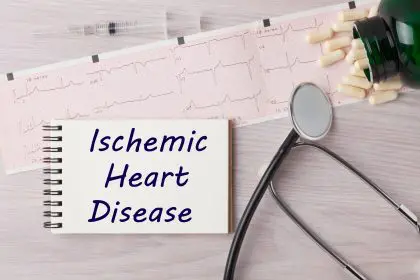Heart disease maintains its grim status as the number one killer of Americans, claiming more lives annually than cancer and accidental deaths, the second and third leading causes, combined. The American Heart Association’s 2025 update paints a sobering picture: someone in the United States dies from cardiovascular disease every 34 seconds, translating to approximately 2,500 deaths daily. While high blood pressure, elevated cholesterol, obesity, and smoking remain well-established risk factors, emerging research points to a surprising new contributor: human papillomavirus (HPV).
This common sexually transmitted infection, estimated to affect 85% of unvaccinated women by age 45, may significantly increase cardiovascular disease risk, according to new findings that expand our understanding of heart health threats.
The widespread impact of HPV
HPV stands as the most prevalent sexually transmitted infection in America. According to the Centers for Disease Control and Prevention, it affects both men and women across all demographics. Most individuals with HPV experience no symptoms whatsoever, and in approximately 90% of cases, the virus resolves independently within two years without treatment.
However, persistent infections can develop into health concerns. Some HPV strains cause genital warts, while others can lead to various cancers, including cervical, anal, penile, and oropharyngeal cancers. These serious manifestations represent distinct HPV types with different risk profiles.
The virus spreads primarily through vaginal or anal intercourse, though any close skin-to-skin contact during sexual activity can transmit the infection. An individual carrying HPV can pass it to partners even when completely asymptomatic, and symptoms may not appear until years after the initial infection occurs.
Prevention strategies include consistent condom use during sexual encounters, though this provides incomplete protection. Regular cervical cancer screenings remain crucial, as most women discover their HPV status through abnormal Pap test results. The HPV vaccine offers significant protection when administered in the recommended two or three doses between ages 9 and 26.
The alarming prevalence statistics
CDC data reveals that 13 million Americans become infected with HPV annually, with approximately 36,000 cases progressing to cancer in both sexes. A comprehensive 2014 study published in Sexually Transmitted Diseases projected that without vaccination, 84.6% of women and 91.3% of men would acquire HPV by age 45.
While vaccination efforts have likely reduced these percentages somewhat, many Americans were already past the recommended vaccination age when the HPV vaccine first became available in 2006. The CDC maintains that “nearly everyone will get HPV at some point in their lives,” underscoring its pervasiveness in the population.
The 3 cardiovascular connections revealed
A groundbreaking study scheduled for presentation at the American College of Cardiology’s Annual Scientific Session has identified significant links between HPV infection and cardiovascular health risks. Researchers analyzed data from seven studies conducted between 2011 and 2024, examining HPV status and cardiovascular outcomes among nearly 250,000 patients.
Their analysis revealed three key findings about cardiovascular impacts:
Overall elevated risk: HPV-positive patients demonstrated a 40% higher likelihood of developing cardiovascular disease compared to those without the infection. Even after adjusting for potential confounding variables—including sociodemographic factors, lifestyle behaviors, personal and family medical history, and blood pressure medication use—the risk remained 33% higher.
Doubled coronary artery disease risk: Those testing positive for HPV faced twice the risk of developing coronary artery disease, a condition characterized by plaque accumulation in the heart’s arteries that restricts blood flow to the heart muscle.
No significant blood pressure effects: The researchers found that HPV infection had no statistically significant impact on blood pressure measurements, suggesting the cardiovascular risks operate through other mechanisms.
According to the study’s lead author, Stephen Akinfenwa, MD, an internal medicine resident at UConn School of Medicine, the research clearly demonstrates an association between HPV and cardiovascular disease. While the exact biological mechanism remains undetermined, researchers hypothesize it may be related to chronic inflammation. The team hopes to investigate whether reducing HPV through vaccination might potentially reduce cardiovascular risk.
Potential mechanisms behind the connection
While the most recent study does not definitively explain how HPV affects cardiovascular health, it builds on previous research that offers preliminary hypotheses. The authors acknowledge that additional investigation remains necessary to clarify the underlying biological processes.
One of the analyzed studies, published in 2024 in the European Heart Journal, followed 63,000 young and middle-aged Korean women without pre-existing heart disease. After tracking HPV status for 17 years, researchers concluded that women infected with high-risk HPV strains were four times more likely to die from heart disease, according to Harvard Health Publishing reporting.
Harvard Health reported that the study authors suggested viral infections can trigger inflammation, a key player in heart disease, which may explain the association. Chronic inflammation represents a well-established contributor to atherosclerosis and overall cardiovascular disease progression.
However, these researchers also emphasized that further studies are needed, particularly those including male participants, since the most recent analysis did not classify HPV cases by risk level or sex-specific outcomes.
The broader implications for public health
These findings arrive at a critical moment in American cardiovascular health. With heart disease already claiming approximately 700,000 lives annually in the United States, identifying modifiable risk factors becomes increasingly urgent for public health interventions.
The potential connection between HPV and heart disease adds a new dimension to vaccination importance. While HPV vaccination has primarily been promoted for cancer prevention, these emerging cardiovascular links suggest broader health benefits that could influence vaccination recommendations and uptake.
For adults who have already contracted HPV, these findings underscore the importance of comprehensive cardiovascular health monitoring. Regular screenings for heart disease risk factors may be particularly beneficial for those with known HPV infections, especially persistent or high-risk strains.
The path forward
As researchers continue investigating the relationship between HPV and cardiovascular disease, several important questions remain. Future studies will likely focus on determining whether specific HPV strains carry greater cardiovascular risks, whether the duration of infection influences outcomes, and whether HPV vaccination might provide protective effects against heart disease.
Additionally, understanding sex-specific differences in how HPV affects cardiovascular health could help tailor screening and prevention strategies for both men and women. The biological mechanisms underlying the association, whether through direct viral effects, inflammatory processes, or other pathways, also warrant deeper exploration.
For now, these findings reinforce the value of established heart disease prevention strategies while highlighting the potentially complex interplay between infectious agents and cardiovascular health. As our understanding of these connections deepens, it may reshape approaches to both HPV management and heart disease prevention for millions of Americans.













